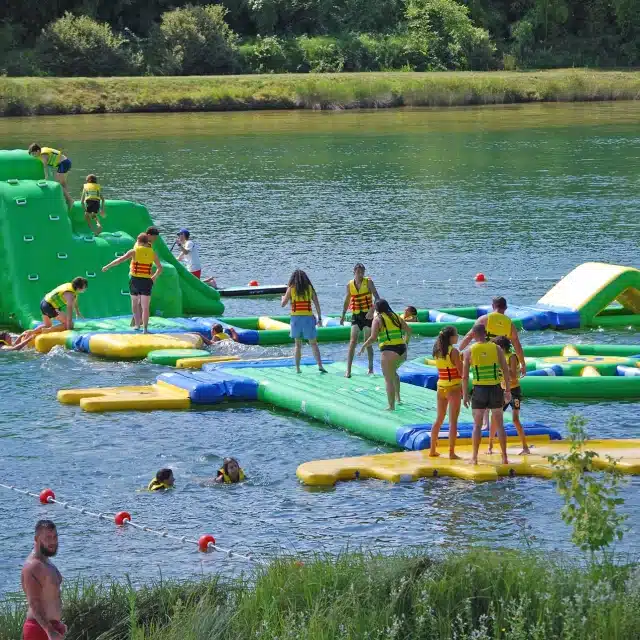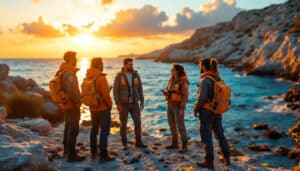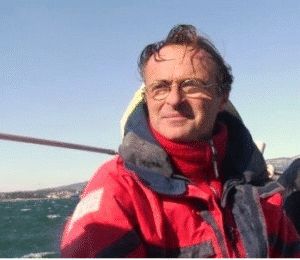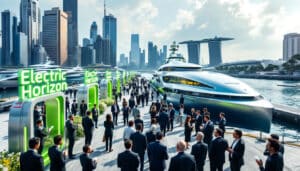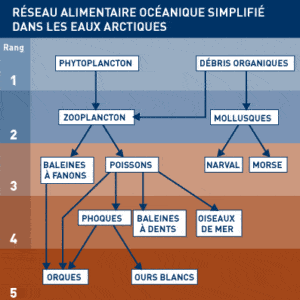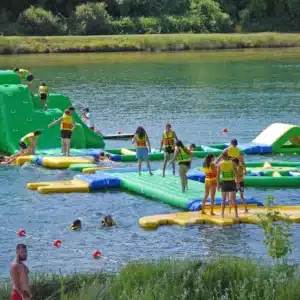Aquaculture, often seen as a response to the growing food needs of the world, is gradually transforming into a tourist attraction in maritime greenhouses. This expanding sector, with its modern infrastructure and sustainable practices, offers a new dimension to seaside tourist experiences. Platforms like “Genghai No. 1”, true technological marvels, are no longer just producing fishery resources, but they are becoming focal points for tourists curious to discover a novel connection between the sea and innovation. By 2025, the seamless integration of aquaculture and tourism promises unprecedented opportunities for ethical and educational “Aquaculture Travels”.
Table of Contents
ToggleInnovations in Aquaculture and Their Impact on Coastal Tourism
The rapid evolution of aquaculture encourages new tourist perspectives. The “Genghai No. 1” initiative, a symbol of aquaculture modernization, shows how technological innovations can enrich the visitor experience. With autonomous management and advanced technologies, such as 5G connectivity and big data analysis, platforms like this ensure sustainable and attractive management for visitors.
By integrating educational visit circuits, these platforms allow tourists to dive into the behind-the-scenes of modern aquaculture. They can observe in real-time the management of marine resources and understand the ecological challenges surrounding this activity. Not only does this enhance the tourist appeal of these locations, but it also strengthens environmental awareness among visitors.
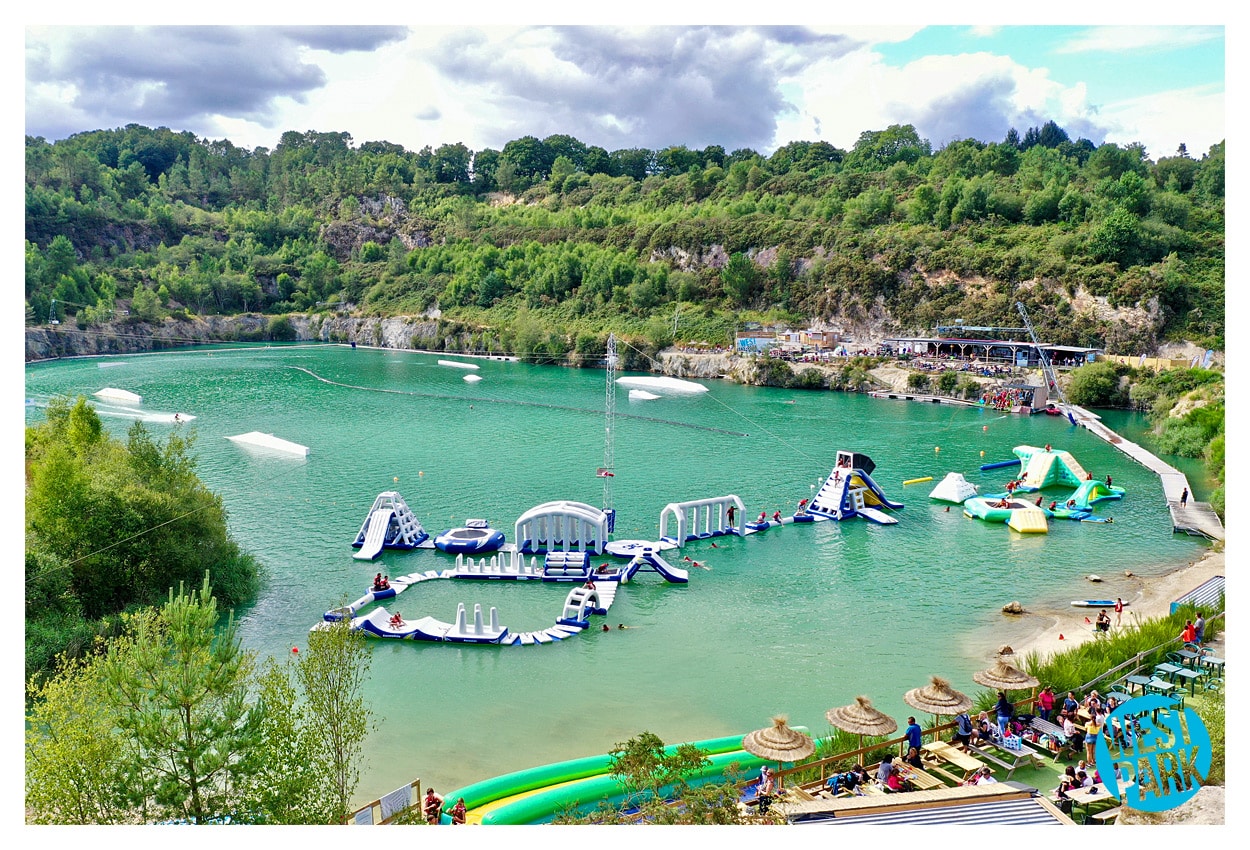
Artificial reefs deployed to enhance marine biodiversity are also becoming popular underwater attractions. Diving enthusiasts can discover a thriving marine life, once rare in these regions. This transformation into interactive places of marine discovery contributes to the valorization of the “Terroir de la Mer” concept, which blends local flavors with biodiversity.
List of key innovations of Genghai No. 1:
- Automated bait feeding system
- Real-time environmental monitoring
- Solar and wind energy
- Artificial reefs to promote biodiversity
Moreover, the impressive dimensions of these marine facilities, such as the 400,000 cubic meters of Genghai No. 1, provide sufficient infrastructure to host various tourist activities while preserving their primary purpose, namely aquaculture. This fusion of experiences heralds a new era for Aquaculture Adventurers, ready to explore the uncharted aspects of our seas.
The Appeal of Ethical Maritime Stays
The concept of Ethical Maritime Stay is gaining ground as tourists seek travel experiences that combine entertainment and social responsibility. With the rise of sustainable aquaculture, these stays offer a new way to discover marine riches while raising awareness of ecological challenges. Visitors participate in practical workshops, guided tours focused on sustainability, and tastings of seafood products from responsible aquaculture practices.
Ethical maritime stays rest on three fundamental pillars:
| Pillar | Description | Impact on Tourism |
|---|---|---|
| Awareness | Educating tourists about biodiversity and ecological practices | Increases environmental awareness |
| Participation | Active involvement in sustainable activities | Strengthens visitor engagement |
| Contribution | Direct support for local initiatives | Stimulates the local economy and strengthens social fabric |
Contemporary concerns for sustainability not only attract an increasing number of tourists interested in the ecological impact of their travels but also push operators to innovate by creating immersive and contributive experiences. A central element of this transformation is the ideology of the “Blue Ocean Experience”, inviting tourists to experience the sea in an ethical and educational manner.
Revolutionizing the Sustainable Tourism Network through Aquaculture
Aquaculture is becoming an essential link in the Sustainable Tourism Network. By integrating this practice into tourist circuits, coastal destinations attract an audience concerned about the environment. By 2025, the fusion of aquaculture and sustainable tourism promises economic prosperity while preserving marine resources.
It is essential to educate travelers about the importance of sustainable aquaculture practices. According to the initiative https://action-climatique.com/eau-et-oceans/education-et-sensibilisation/eduquer-les-touristes-a-un-tourisme-responsable-en-bord-de-mer-enjeux-et-perspectives/, many programs are already educating people to respect the environment during their stays. Aquaculture platforms are becoming models of development not only for environmental conservation but also as resource centers to raise awareness about how to protect the seas.
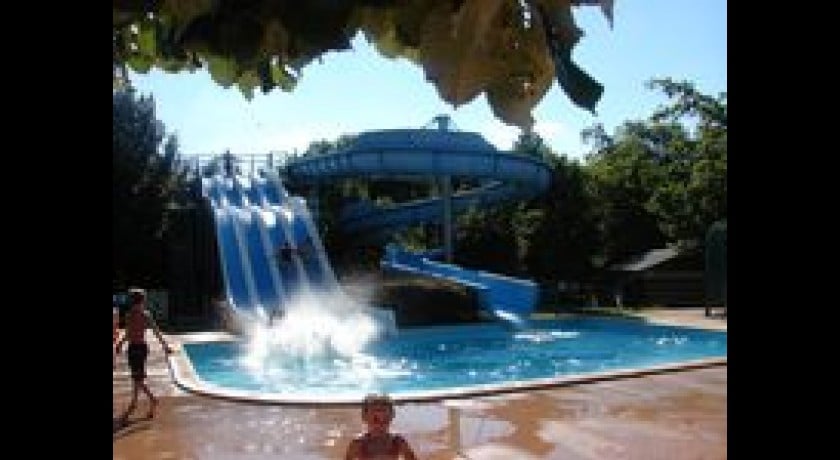
The diversity of maritime experiences offered allows every type of traveler to find a format that suits their expectations. Whether through responsible fishing, discovering aquaculture systems, or tasting freshly caught seafood, each experience strengthens the bond between humanity and nature.
Thus, local actors such as hotels, restaurants, and transporters are rallying to the sustainable cause by cooperating with aquaculture industries to offer a truly immersive Aquaculture Journey. These joint efforts ensure harmonious and sustainable development of the coasts while protecting their natural heritage.
Aquatic Getaway through Aquaculture
Exploring aquaculture in a fun and educational way transforms a simple stay into a true Aquatic Getaway. Beaches, once coveted primarily for their leisure activities, are enriched with a new offer of activities centered around aquaculture. Tourists are invited to experience unique “Maritime Experiences”, where they can delve into ancestral trades reinterpreted by today’s innovations.
The aquatic getaway thus offers:
- Workshops discovering modern aquaculture techniques
- Sea excursions to understand the realities of the aquaculture environment
- Interactive diving sessions to explore artificial reefs
This renewal of tourist propositions not only meets the aspirations of an audience seeking authenticity, but it also boosts the local blue economy, according to the article How local blue economy can change our sustainable future.
By rethinking maritime tourism through the lens of aquaculture, it is possible to create new, immersive, and educational experiences. The sea, as a new learning space, allows adventurers to discover forgotten know-how while ensuring its future transmission, thereby anchoring the idea of a vibrant and respected Terroir de la Mer.

